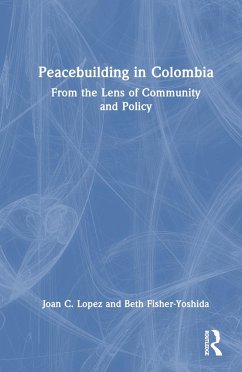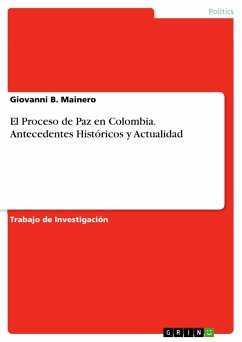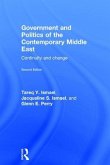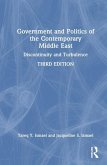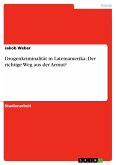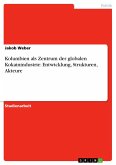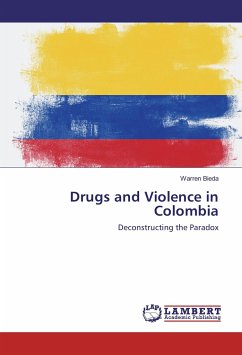In this book, Joan C. Lopez and Beth Fisher-Yoshida offer an alternative narrative of youth and peacebuilding, to the popular one about youth, violence, and peacemaking. Using testimonies of current and past youth community leaders in Colombia, Lopez and Fisher-Yoshida tell a story of hope, creativity, and unrelenting resilience. They bring attention to the ways peaceful responses to violent conflicts are formed in communities and how these have the potential to inform processes of peacebuilding in areas with similar social and historical characteristics. Focused on action-oriented initiatives, the book concludes by proposing ways in which social change can continue to happen and how we might be able to foster it. Lopez and Fisher-Yoshida specifically explore ways in which we can continue to support efforts and create new initiatives for other youth. Some of these ideas include doing more capacity building, fostering more networking and knowledge transfers, identifying ways of increasing social entrepreneurship, and building more effective youth leaders. Peacebuilding in Colombia fills an important gap in the literature on the characteristics of peacebuilding. It is a must read for academics, students and practitioners interested in the study and practice of peacebuilding in violent and post violent contexts.
Hinweis: Dieser Artikel kann nur an eine deutsche Lieferadresse ausgeliefert werden.
Hinweis: Dieser Artikel kann nur an eine deutsche Lieferadresse ausgeliefert werden.
"This work has great merit: it speaks of peace from a "discreet and delicate" point of view, which has the advantage of incorporating a wider perspective about the meanings associated with peace, and thereby uncovering overlooked community practices, while deepening and broadening old conceptual boundaries. In the case of Colombia, there is an account of the sufferings of the victims; some of them quite visible such as injuries and deaths, and others deriving from more complex mechanisms such as the dispossession of land. These forms of violence against communities behaved like an endemic cloud that altered the daily life of people who found themselves forced to find in the nearest rifle a way of survival: a radical way of limiting people's liberty. I invite you to read this publication, not only as a collection of painful situations but most importantly, as a hymn of hope."
Humberto De la Calle, Former vice-president of Colombia, Government's lead negotiator during the Habana Peace Accords between the Colombian government and FARC, Senator
"Many Colombians affected by the violent conflict, like myself, have opened spaces to heal the wounds of the war. Just as our work is important for the consolidation of peace in Colombia, the documentation of these processes is pivotal. In spaces for the construction of territorial memory such as CARE in San Carlos, Antioquia, we seek to show the new generations what happened to us and invite them to not allow this to happen again. The authors, with this publication, make a contribution to the recognition of the victims and, above all, to their powerful and incessant search for peace."
Pastora Mira, Coordinator of the Reconciliation and Reparation Center (CARE), in San Carlos, Antioquia, Colombia
"Based on years of fieldwork in Colombia and constant contact with its people, the authors of Peacebuilding in Colombia: From the Lens of Community and Policy, make an important contribution to understandings about how a term as elusive as "peace" is built and appropriated by communities in Colombia. The authors manage to show the diversity of the country, historically hit by violence, while highlighting optimistic and hopeful initiatives that come from underprivileged communities."
Laura Betancur Restrepo, Associate professor of law and coordinator of the master's program in Peacebuilding at Universidad de Los Andes
Humberto De la Calle, Former vice-president of Colombia, Government's lead negotiator during the Habana Peace Accords between the Colombian government and FARC, Senator
"Many Colombians affected by the violent conflict, like myself, have opened spaces to heal the wounds of the war. Just as our work is important for the consolidation of peace in Colombia, the documentation of these processes is pivotal. In spaces for the construction of territorial memory such as CARE in San Carlos, Antioquia, we seek to show the new generations what happened to us and invite them to not allow this to happen again. The authors, with this publication, make a contribution to the recognition of the victims and, above all, to their powerful and incessant search for peace."
Pastora Mira, Coordinator of the Reconciliation and Reparation Center (CARE), in San Carlos, Antioquia, Colombia
"Based on years of fieldwork in Colombia and constant contact with its people, the authors of Peacebuilding in Colombia: From the Lens of Community and Policy, make an important contribution to understandings about how a term as elusive as "peace" is built and appropriated by communities in Colombia. The authors manage to show the diversity of the country, historically hit by violence, while highlighting optimistic and hopeful initiatives that come from underprivileged communities."
Laura Betancur Restrepo, Associate professor of law and coordinator of the master's program in Peacebuilding at Universidad de Los Andes

